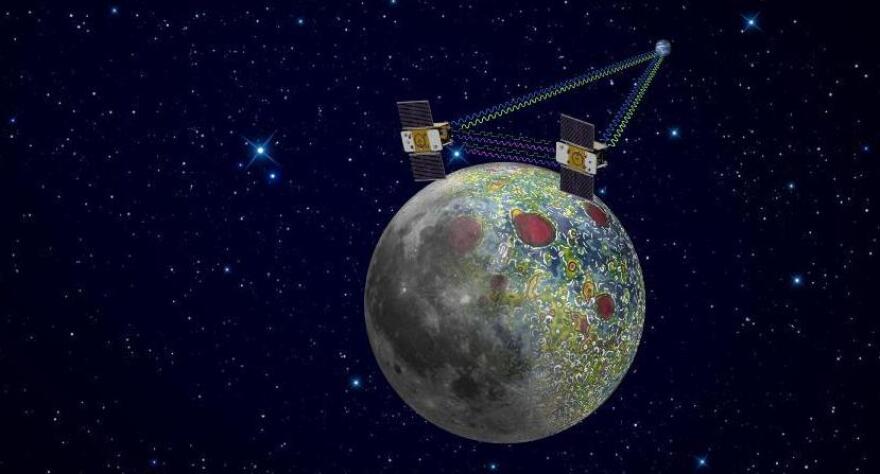NASA is hoping that two probes scheduled to arrive on the moon New Year's Eve and New Year's Day will shed new light on our closest celestial neighbor.
The Gravity Recovery And Interior Laboratory (Grail A, and Grail B) probes will study the moon's uneven gravitational field. One quote from the AP's story about the probe caught our attention. The AP spoke to Maria Zuber, the mission's chief scientist, who said:
'"We actually know more about Mars ... than we do about our own moon,' Zuber said."
Essentially, this mission will tell us how the moon came to be and might unlock some mysteries, like this one that the AP points out:
"One puzzle scientists hope to solve is why the moon's far side is more hilly than the side that always faces Earth. Research published earlier this year suggested that Earth once had dual moons that collided and formed the moon that people gaze at today."
Here's Space.com's description of how the probes will work:
"Grail-A and Grail-B won't be ready to start their science campaign immediately upon arriving at the moon. Rather, they'll spend another two months circling lower and lower, eventually settling into orbits just 34 miles (55 kilometers) above the lunar surface, researchers said.
"The twin probes will begin taking measurements in March. They'll chase each other around the moon for 82 days, staying 75 to 225 miles (121 to 362 km) apart. [Video: Grail's Mission to Map Moon Gravity]
"Regional differences in the moon's gravitational field will cause the two spacecraft to speed up or slow down slightly, changing the distance between them as they fly. Using microwave signals that they bounce back and forth to each other, Grail-A and Grail-B will gauge these distance variations constantly."
Copyright 2021 NPR. To see more, visit https://www.npr.org.




